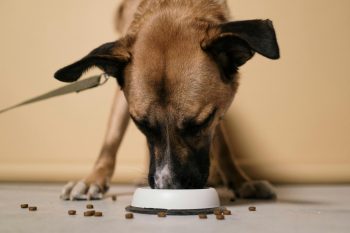Feeding your dog the right food is one of the most crucial aspects of pet care. Understanding what you should feed your dog can significantly impact their overall health, longevity, and quality of life. A balanced diet tailored to your dog’s needs helps maintain optimal weight, supports a healthy coat and skin, boosts the immune system, and promotes good digestion. Knowing what you should feed your dog can be overwhelming with the myriad available options.
This article provides a comprehensive guide to help you make informed decisions about your dog’s diet, ensuring they receive all the necessary nutrients for a happy and healthy life.
Nutritional Needs of Dogs
What Should You Feed Your Dog for Balanced Nutrition?
Balanced nutrition is vital for your dog’s health. Dogs require a mix of proteins, fats, carbohydrates, vitamins, and minerals to thrive. Proteins are essential for growth and repair, fats provide energy and support cell function, and carbohydrates offer a quick energy source. Vitamins and minerals are crucial in various bodily functions, from bone development to immune system support.
Essential Nutrients and Their Importance
Understanding the essential nutrients your dog needs is the first step in determining what you should feed it. Protein sources like chicken, beef, and fish help build and repair tissues. Healthy fats from fish oil and flaxseed support brain health and coat condition. Carbohydrates from vegetables and grains provide the necessary energy, while vitamins and minerals in fruits and fortified foods are critical for overall health.
Top 20 Fruits And Veggies Your Dog Will Enjoy
Types of Dog Food
Commercial Dog Food: What Should You Feed Your Dog?
Commercial dog food is popular due to its convenience and nutritional completeness. When choosing commercial dog food, look for high-quality ingredients and a balance of protein, fats, and carbohydrates. Brands that meet AAFCO (Association of American Feed Control Officials) standards ensure that the food provides all necessary nutrients.
Raw Diet: Is It Right for Your Dog?
A raw diet comprises uncooked meat, bones, fruits, and vegetables. Proponents believe it mirrors the natural diet of wild dogs and offers numerous health benefits. However, careful planning is required to ensure balanced nutrition and prevent foodborne illnesses. Consult a veterinarian before switching to a raw diet to ensure it suits your dog.
Homemade Dog Food: What Should You Feed Your Dog?
Homemade dog food allows you to control the ingredients and tailor meals to your dog’s needs. However, a good understanding of canine nutrition is required to ensure balanced meals. Include a mix of proteins, vegetables, and grains, and consider supplementing with vitamins and minerals. Consulting a veterinarian or a pet nutritionist can help you formulate a balanced, homemade diet.
Discover What You Need To Know About Dog Food Labels
Foods to Avoid
What Should You Never Feed Your Dog?
Certain foods are toxic to dogs and should be avoided at all costs. Chocolate, grapes, raisins, onions, garlic, and caffeine can cause severe health issues. Additionally, fatty foods and bones can lead to pancreatitis and choking hazards, respectively.
Common Harmful Foods and Their Effects
Feeding your dog inappropriate foods can lead to various health problems. For example, chocolate contains theobromine, which is toxic to dogs and can cause vomiting, diarrhea, and even death. Grapes and raisins can lead to kidney failure, while onions and garlic can cause anemia. Always be cautious about what you allow your dog to consume.
Special Dietary Considerations
What Should You Feed Your Dog with Allergies or Sensitivities?
Dogs with allergies or food sensitivities require special diets to avoid triggering adverse reactions. Identifying the allergen through an elimination diet can help you determine what you should feed your dog. Many commercial foods cater to dogs with allergies, using novel proteins like venison or duck and grain-free formulas.
Dietary Needs for Different Life Stages (Puppy, Adult, Senior)
Dogs’ nutritional needs change with age. Puppies need more protein and calories to support growth and development. Adult dogs require balanced maintenance diets, while seniors may need lower-calorie foods with joint support supplements. Choose age-appropriate food to ensure your dog gets nutrients at every life stage.
Find Out The Top Harmful Foods For Pets
Conclusion: Ensuring Your Dog’s Health Through Proper Nutrition
Here’s a recap of key points on what you should feed your dog. Providing your dog with a balanced diet is essential for overall health and well-being. Understanding its nutritional needs, choosing the right type of food, and being aware of harmful foods are critical steps in maintaining its health. By following these guidelines and consulting with your veterinarian, you can ensure that you feed your dog the best diet possible.
The post What Should You Feed Your Dog? appeared first on iHeartDogs.com.

